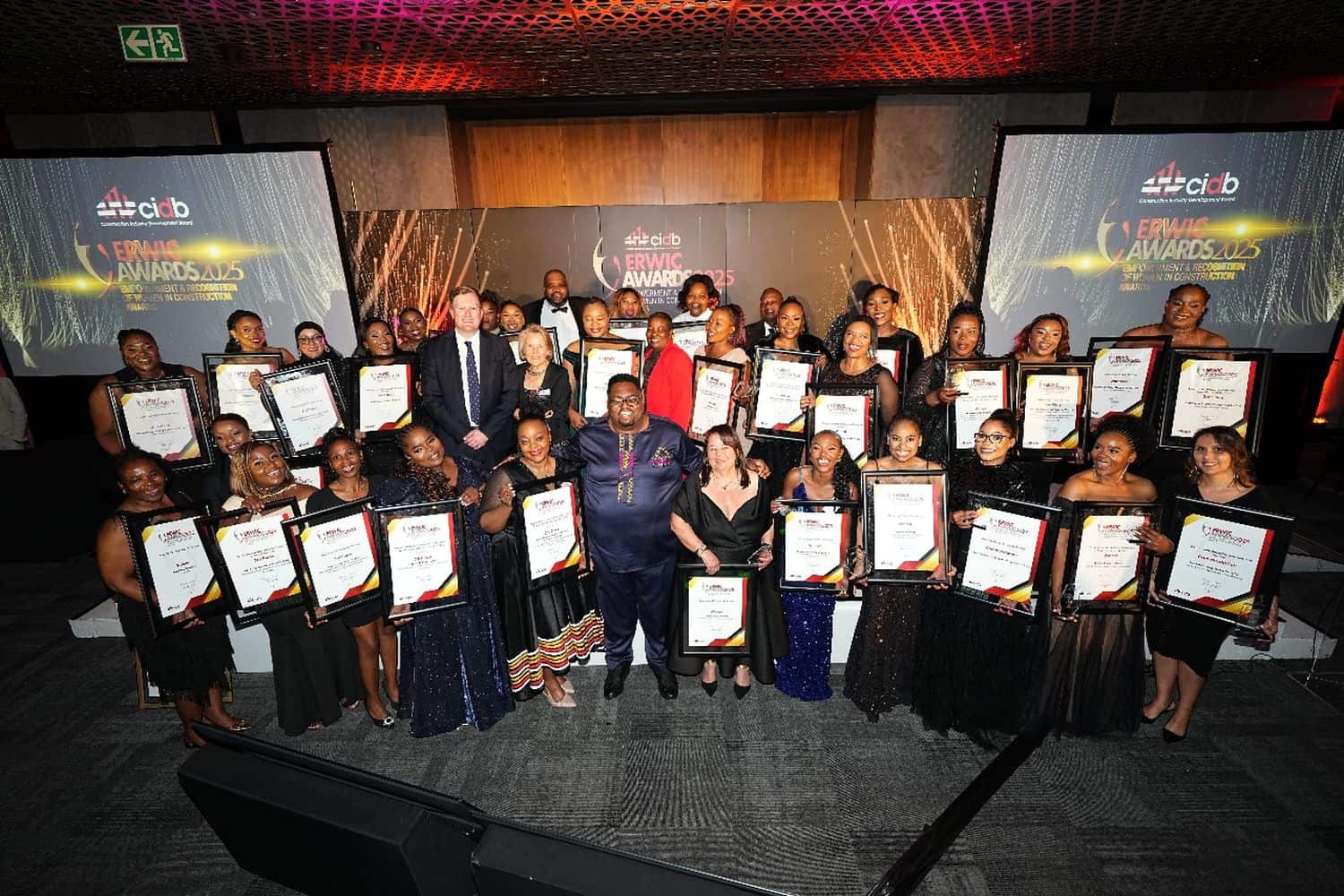Women remain significantly underrepresented in male-dominated industries

Construction is one of the sectors that is male-dominated, because traditionally it has been seen as physically demanding and suited primarily for men. But in the new age, more women are breaking barriers by entering the space and making a difference.
However, there is still a lot of work to do to ensure there is gender equality in the industry.
The Construction Industry Development Board (CIDB) held the sixth annual Empowerment and Recognition of Women in Construction Awards on Thursday.
The CIDB is a public entity which promotes a regulatory and developmental framework to build construction industry delivery capability.
ALSO READ: More women encouraged to enter STEM sectors
Women in construction
Dean Macpherson, minister of public works and infrastructure, opened the evening by highlighting the role women play in the industry.
“These awards shine a spotlight on achievement, but they equally advance courage, perseverance and vision.
“They highlight the determination it takes to succeed in a space that has, for far too long, been closed or unwelcoming to women.”
Macpherson noted that there is still a long way to go in making sure there is gender equality in the sector as only 22% of companies on the CIDB register of contractors are women-owned.
Women should get more projects
He suggested that women in construction might be better suited to take on the unfinished and poorly executed projects, as they could potentially do a better job.
“We celebrate women who have completed projects on time, within budget, to the highest quality standards and to the satisfaction of their clients.
“We probably should award all the unfinished or badly done projects to women’s companies, as I am sure you will do a better job.”
ALSO READ: What most women look for in a job – report
Gender underrepresented
According to Statistics South Africa, women remain significantly underrepresented in male-dominated industries such as transport, construction and mining, where their representation stands at 2.5%, 1.9%, and 1% respectively.
In their latest blog explaining gender gaps in the country’s labour market, they said women are employed, but they are often concentrated in specific industries.
“According to the latest data, nearly a third of all employed women (32.8%) work in community and social services. This is followed by 20.6% in the trade industry, 18% in finance, and 11.4% in private household employment.”
The backbone of the economy
Khulile Nzo, CIDB chair, said infrastructure is the backbone of the country’s economy. But for that backbone to be strong, it must be inclusive.
“Women’s participation is not just desirable, it is essential. Yet, we know transformation has been too slow, and representation too low across the infrastructure delivery chain.”
He said they are pushing forward as CIDB to develop an industry that serves the economy and people better – one that thrives because it includes everyone.
Bongani Dladla, CIDB CEO, said it is important to note that the sector could not have accomplished most of its goals without the participation of women.
“None of this momentum would be possible without the courageous, talented women we celebrate tonight. You are not just participants in this sector, you are catalysts for change.
“You lead with grit and grace. You inspire innovation. You break barriers. And you show us, every single day, that transformation is not just possible – it is happening right now.”
ALSO READ: GirlCode Hackathon set to empower women in tech across Africa
Construction’s future in SA
According to KH Plant, one of SA’s premier specialist motor grader rebuild centres, expectations for the country’s construction industry are cautiously positive for 2025 and 2026.
“According to analysts, South Africa’s construction industry is expected to rebound and record average annual growth of 2.9% from 2025 to 2028.
“This is due to anticipated private investments in renewable energy and government investment in the country’s transportation infrastructure.”
Winners of the night
Some of the winners of the Empowerment and Recognition of Women in Construction Awards are:
- Nondumiso Amanda Ceba, from Ceba Projects, for the Sky City project, for the category of Project Delivery Excellence (Grades 1);
- Lindiwe Mathenjwa, from Emadwaleni Holding, for maintenance of flush toilets and construction of new toilet facilities, for the category of Project Delivery Excellence (Grades 2-4);
- Makoma Matlala from Mabalane A Seven Construction, for the construction of 36 walk-up units, for the category of Project Delivery Excellence (Grades 5-6);
- Suzan Portia Phalane from Sue Phalane Trading and Projects (Pty) Ltd for the construction of Tlaseng roads and stormwater drainage for the category of Project Delivery Excellence (Grades 7 and up);
- Mentoring Entity of the Year: Avenir Holdings;
- Transformation Entity of the Year: Sue Phalane Trading and Projects (Pty) Ltd;
- Manufacturing Entity of the Year: Isubisiso Holdings;
- Youth-owned Woman Construction Entity of the Year: Econocom 47 t/a Qualicon Construction;
- Woman-owned Construction Entity of the Year: GD Projects and Construction (Pty) Ltd; and
- Woman with Disability Contractor of the Year: Taryn Beaton of Beaton Enterprises (Pty) Ltd for the Standard Bank Water Project – new RO Plant.
NOW READ: Gender inequality: More females needed in the business world
Support Local Journalism
Add The Citizen as a Preferred Source on Google and follow us on Google News to see more of our trusted reporting in Google News and Top Stories.








